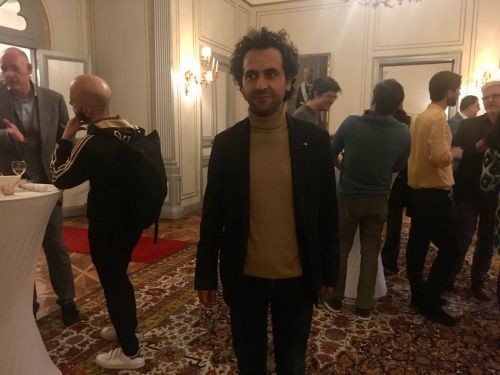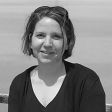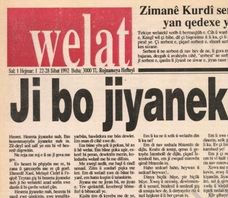Click to read the article in Turkish
"The texts of a 41-year-old writer always win against what is written by a 10-year-old girl."
These remarks are uttered by Sámi writer Elin Anna Labba, who compares the texts written in the Sámi language, which she learned at the age of 25, and in Swedish, which she has been speaking since her birth.
In Turkey as part of the Belongings project, which offers a platform for Kurdish and Sámi writers to meet and exchange opinions, writer Labba answered the questions of journalist Burcu Karakaş at an event held at the Swedish Consulate in İstanbul on April 5, 2022.
Labba, also a journalist, talked about being a "minority" whose language was oppressed and whose culture was erased in Sweden, which ranks high in the world equality and democracy indexes.
Elaborating on the history of repression faced by the Sámis, who live in the northern parts of Norway, Sweden, Finland and Russia, Labba used the expression of "a sad period of Swedish history".
She noted that following the language movement in the 1980s, several Sámis have started to learn their mother language today.
Coming from a traditional Sámi family with his father raising reindeers, Labba's biggest dream is to write a book in her mother language one day. Contrary to his father, who did not speak Sámi at home even though his mother language is Sámi, Labba speaks to her children in this language.
'Mother language liberates'
In response to a question by journalist Karakaş, who asked her about the historical trauma within the context of being a "minority" and overcoming traumatic experiences, Labba first drew a deep sigh.
"Time," she said: "Time is the best weapon we have to heal, but learning the language is the most important process to speed up the healing".
She recounted how a South African writer had told her about the liberating side of learning one's oppressed, repressed and banned language.
"My grandfather did not know Swedish. When we started to speak Sámi, I saw a completely different person," she said, adding that she could share the last years of his life with him thanks to the language.
But are there a higher number of Sámi learners? "Yes, a lot," answered Labba. Because coupled with pressure of the previous generations and anger at their passivity in the face of repression, "trauma turns into rage".
The writer talked about how being Sámi, which used to be associated with "shame", has turned into a token of "pride".
Özyaşar: Kurdish should be equal to Turkish
Hearing all these, the audience in İstanbul naturally thought about the fate of "de facto" banned Kurdish, which was officially banned until the 2000s and over which street musicians are penalized, theater plays are banned at the last minute and speakers are even killed in Turkey.
According to the 2020 data of the Socio-Political Field Research Center, in city centers, only 40-45 percent of Kurds speak Kurdish at home.
Is it possible to inspire interest in the people who have not learned Kurdish as their mother language?
Sámi writer Labba said that the most important factor leading the Sámi language to popularize was the activities such as festivals and concerts targeting the youth. "Having fun in the Sámi language has increased the interest in the language," explained Labba further.
Noting that this point can help the ones working for endangered languages, Labba stressed that the main reason behind the drive to learn Sámi was that the "shame" that used to be felt has turned into a people's pride.

Murat Özyaşar
But is there an inspiration to draw from the Sámi people for the future of Kurdish? According to writer Murat Özyaşar, who was among the audience, it is "very difficult". He explained: "As it is a policy carried out by the government, this policy of assimilation should be first eliminated".
He underlined that "in order for Kurdish to be spoken and learned by a high number of people, Kurdish should be equal to Turkish, it needs to be acknowledged as a Constitutional right and taught at schools".
Noting that "Kurdish should be present in all areas of daily life so that the future of the language can be safeguarded", the writer said, "It needs to be the language of the bazaar, people should shop in this language".
About Belongings
The Belongings Projects, as part of which Elin Anna Labba met the audience in İstanbul, is jointly run by the Wêjegeh Amed (Diyarbakır Literature House) in Turkey's Diyarbakır and Tjállegoahte from Sweden's Jokkmokk.
Supported by Sweden's Consulate General in İstanbul and Swedish Arts Council, the project offers a platform where the writers producing works in the Sámi and Kurdish languages meet. Visiting each other's cities, writers keep diaries based on these visits, which will then be published as a book in Sámi, Kurdish and English. The work expected to be published in late 2022 will be published in Turkish and Swedish. (EBA/AÖ/SD)








